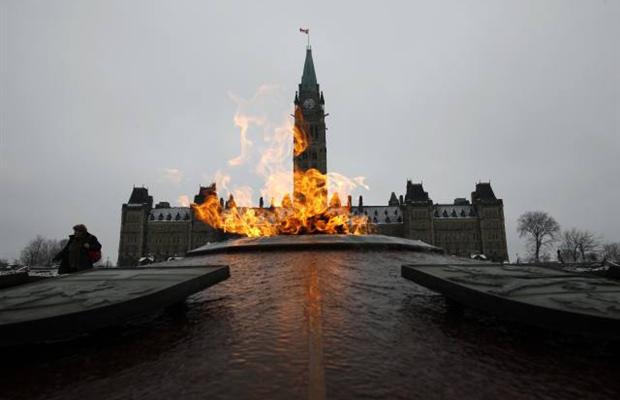Election Day is today, May 2.
Note: Full disclosure, I am (as mentioned in the comments to the last Dispatch from Canada) a partisan of the NDP. Just so we’re clear.
Since the last dispatch from the frozen north, the election has gotten seriously interesting. Traditionally, Canadian elections have been a contest between two parties, the Conservative Party and the Liberal Party. The Conservatives have gone under many names. For decades after Confederation (when we talked our way to independence from Great Britain – hey, we didn’t want to offend anyone on the way out), they were called the Conservatives. Then, they merged in the 1920s with the Progressive Party and became the Progressive Conservatives. Yes, you read that right. In the late 1980s, the far-right in Alberta, Saskatchewan and the interior of British Columbia decided that the Progressive Conservative party was too pansy-ass and, well, progressive. Go figure. So they split off and formed the Reform Party. The Progressive Conservatives continued on, but got absolutely destroyed in the 1993 election, going from 169 seats in the House of Commons to 2. Yes 2. They picked themselves up off the floor somewhat, but never really recovered. Throughout the 1990s, the right-wing vote was very split, letting the Liberals pick up majorities in the House of Commons with less than 40% of the vote. This angered the right, and eventually the Reform Party decided that the right had better be united. So they renamed their party the Canadian Alliance (though not before they delightfully, if temporarily, renamed themselves the Canadian Conservative Reform Alliance Party – CCRAP), and invited the Progressive Conservatives to join in. What happens if you throw a party and no-one comes? The Canadian Alliance is what happens. The attempted merger fell flat.
By 2003, the right-wing parties were getting very frustrated and had another go at merging. This time it took, and two two parties merged into one, renamed the Conservative Party of Canada. And that’s how they got to where they are today.
The Liberals are a simpler story. Founded by angry farmers who wanted free trade (again, you read that right) with the United States in the 1850s, this party governed Canada for huge chunks of the 20th century, to the point that they came to be know, somewhat tongue-in-cheek, as the Natural Governing Party.
For the entire history of Canada, elections have essentially been a contest between these two parties, or their component parts. Only they have ever formed the government, and only once have they not been the two largest parties in the House of Commons. The exception was 1993-1997 when the Bloc Quebecois, a party devoted to independence for Quebec, was second biggest, just ahead of the Reform Party.

In this election campaign, that seems to have changed. For the last two weeks, polls have been showing that the New Democratic Party, founded as the Cooperative Commonwealth Federation in Saskatchewan in the 1930s as a response to the Great Depression, has passed the Liberals and has been gaining on the governing Conservatives. Yesterday, a number of polls showed the Conservatives between 34% and 38%, the NDP between 30% and 33%, and the Liberals between 18% and 22%. Any way you slice it, this will be an election that realigns the Canadian political landscape. The NDP has never received more than 20% in an election, and the Liberals have only once received less than 26% of the vote (and that was in the very first election in Canadian history in 1867).
This change began in Quebec, and then moved into the rest of the country. Traditional assumptions about voting patterns are having to be tossed out. Realignment elections like this one come around perhaps once in a generation. The last one to truly realign the electoral landscape was in 1967, when Pierre Elliot Trudeau led the Liberals to a massive victory and definitively broke the electoral coalition that the Progressive Conservatives had been holding together. This one has the capacity to shatter the Liberal Party and fundamentally alter Canadian political realities. I, and many others, are going to be up very late tonight watching the results come in. I will have a dispatch with some analysis, and probably some required primers on the Canadian constitution, after the election.
